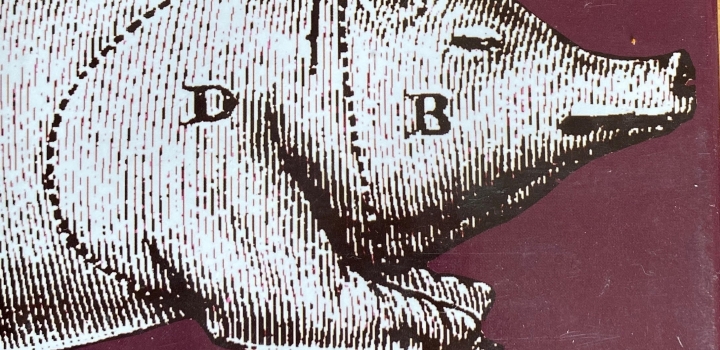
"Erudition and common sense are not always bedfellows," wrote British food writer Jane Davidson, reviewing Jane Grigson's Vegetable Book. But that was Grigson. She wrote beautifully about practical matters. She wrote about the British countryside and the food that grew in it, how it was cooked, and how it should be enjoyed. The daughter of a solicitor and a painter, she grew up in the North East of England and maintained hints of the rising and falling intonations of Sunderland accent until she died in 1990 at just 62. She spent her adult life alongside poet Geoffrey Grigson with whom she had a daughter, Sophie, who, too, became a food writer. The Grigsons bought a cave cottage in Troo, in central France. There Jane garnered an understanding of whole carcass butchery and the importance of charcuterie in the economics of butchery and farming. With this knowledge, she wrote Charcuterie and French Pork Cookery. This debut work became a culinary classic and a must for every chef. It became her entrée into the broader world and, after a lunch with Elizabeth David, became a food writer at The Observer. Her first article was to be on strawberries. Not recipes, instead she found out what "the strawberry has meant to people, what they have done to it, how they have developed it and so on".
Here are some of her own words on her approach to writing…
"The encouragement of fine food is not greed or gourmandise; it can be seen as an aspect of the anti-pollution movement in that it indicates concern for the quality of the environment. This is not the limited concern of a few cranks. Small and medium-sized firms, feeling unable to compete with the cheap products of the giants, turn to producing better food. A courageous pig-breeder in Suffolk starts a cooked pork shop in the high charcuterie style; people in many parts of the country run restaurants specialising in local food; I notice in grocer's shops in our small town the increasing appearance of bags of strong flour and the prominence given to eggs direct from the farm."
Here is her recipe for duck rillettes
- 2 lb (900g) of duck, jointed not boned
- 2 lb (900g) of pork flair fat
- Salt and paprika
Mince the flair fat, put in the cooking pot to melt slowly. When it runs, add the meat and 3 ounces (85ml) of water. Cook for 6 to 8 hours, so the meat simmers in the fat and juices rather than fries. The bone should fall out, drain off the fat, and pound the meat until it is smooth. Season with salt and paprika and add a proportion of the drained off fat to taste heat it through gently for 15 minutes and place it in a pot cover with a little more fat. Refrigerate.
Order our 2O19 Studebaker Pinot Noir today:
- 3 bottles $105.00 ORDER HERE
- 6 bottles $200.00 ORDER HERE
- 12 bottles $380.00 ORDER HERE
Shipping:
- 3 bottles sales $10
- 6 bottles sales $15
- 12 bottles sales $20




